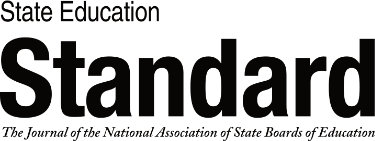States’ annual testing data for spring 2021 showed that unfinished learning in the wake of COVID-19 is most pronounced—and most troubling—in math. In Texas, nearly 40 percent of students failed the state’s math exam in 2021. In Indiana, only 37 percent were proficient in math, down from 48 percent in 2019 Many states saw similar results. What makes the results such a cause for alarm is the sequential nature of math learning. Math skills build like a staircase.
Should math teachers deliver grade-level content to students, knowing they lack the prerequisite skills and concepts to thrive? Or should she remediate by teaching the entire class fourth-grade material, which potentially robs students of the chance to outperform expectations? These questions plagued educators long before COVID-19. But given what test results say about unfinished learning, particularly in math, the need for answers is even more urgent.
The Impact of COVID-19 on Math Achievement
Also In this Issue
The Impact of COVID-19 on Math Achievement
By Jennifer Sattem, Matt Dawson and Elizabeth PeyserWithout urgent attention, the problem of unfinished learning will compound as students advance to later grades.
High-Dosage Tutoring
By Beth SchuelerStrong evidence points to equity and well-being benefits from well-designed programs.
Advancing Science Instruction
By Bobbi NewmanState boards can lean into efforts to boost K-12 science literacy and beef up access to high-quality, inquiry-based education.
The Urgent Need for Tailored Math Instruction
By Joel Rose and Michael WatsonStates can shift away from grade-level myopia to help students catch up.
10 Lessons Learned from the Science Classroom
By Ryan FuhrmanExperience with high-stakes accountability informs teacher's standards setting on the state board.
Mulling Changes to Math Instruction
By Jo Boaler and Jennifer Langer-OsunaA framework proposed in California seeks to boost achievement by increasing the engagement of all students.
Achieving Equity and Excellence in Mathematics Teaching
By Yasemin Copur-GencturkStates should revamp how teachers are equipped to deliver effective instruction.










 i
i
 i
i